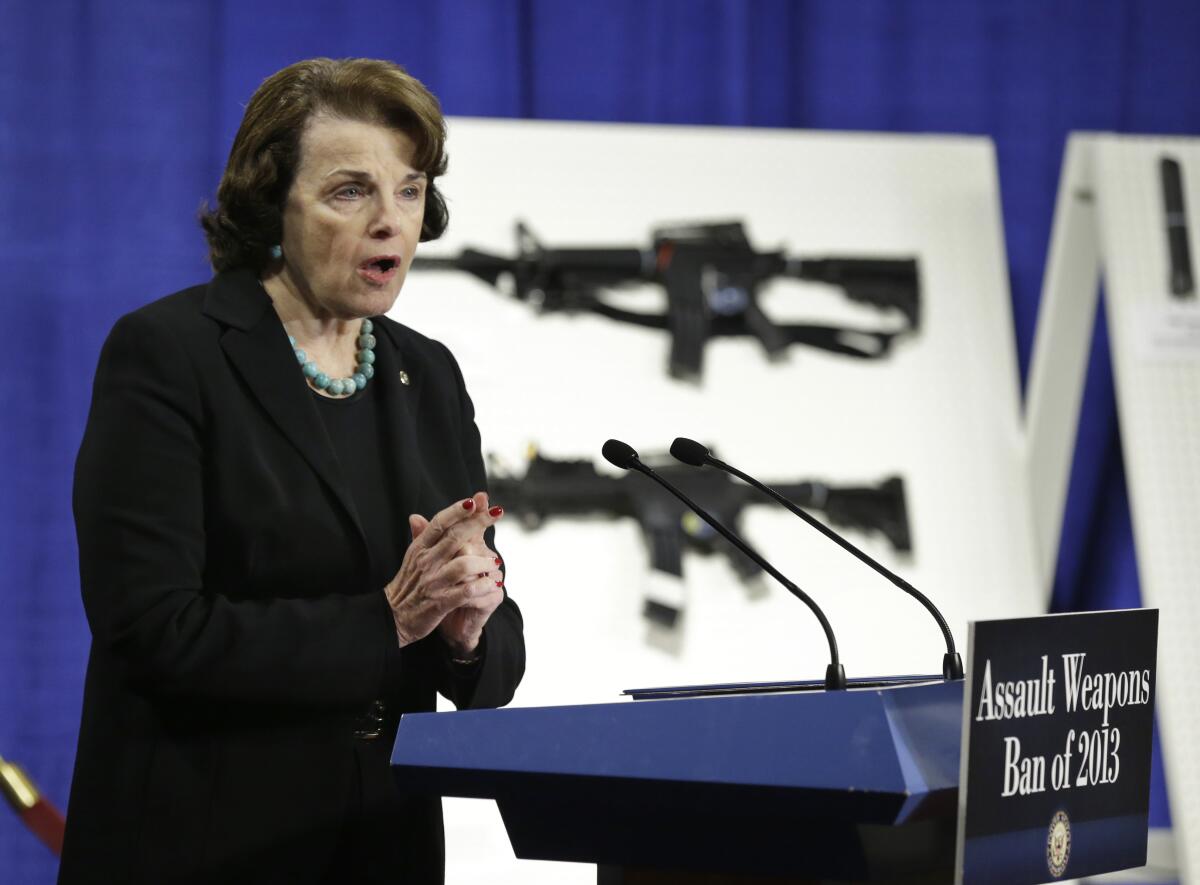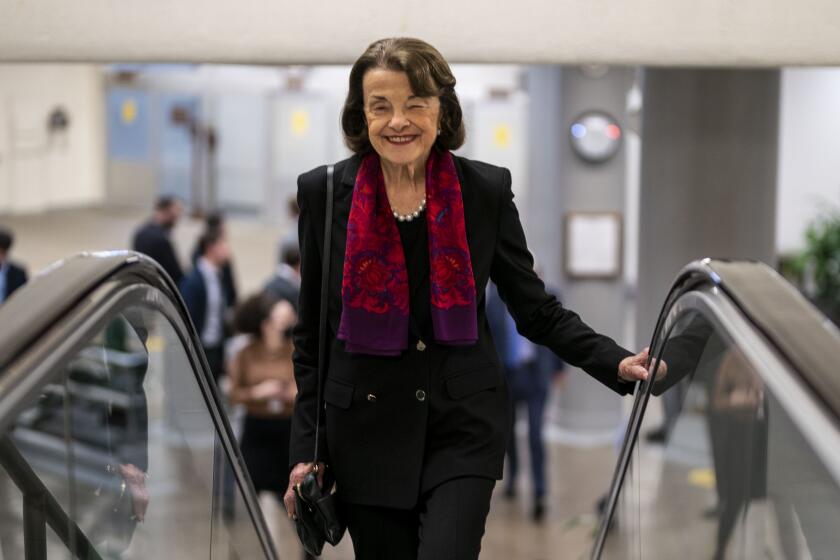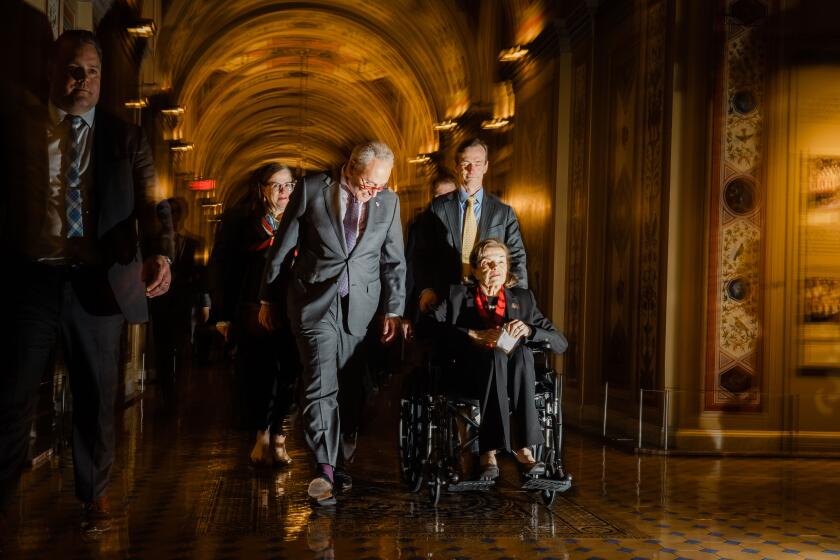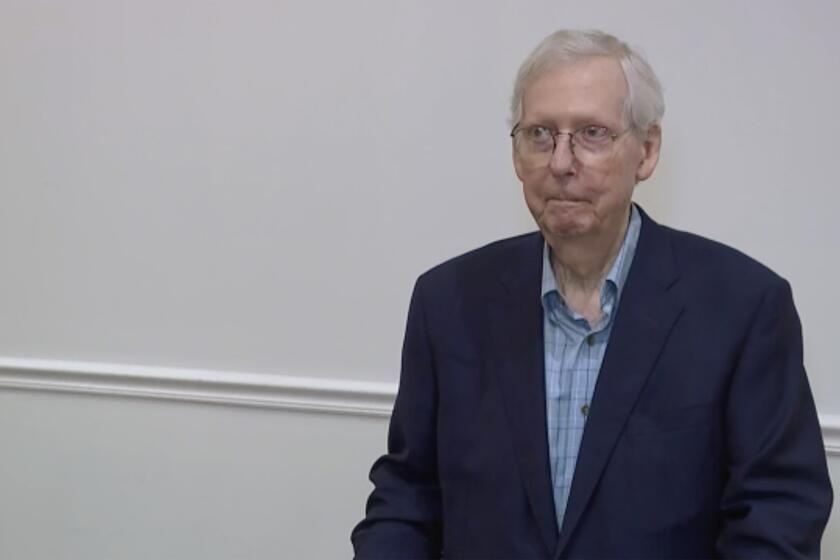Editorial: Dianne Feinstein was a giant in Congress. She won’t easily be replaced

With the passing of Sen. Dianne Feinstein, California has lost its trailblazing senior senator and a giant in state and national politics. She was the rare pragmatic moderate in Congress, embodying the cordiality and cooperation from an earlier, more civil era in Washington. Politics will be poorer for her absence.
We didn’t always agree with Feinstein’s votes or priorities during her three decades in the Senate. But we’ve respected her approach to legislating and her deep commitment to public service. The remembrances pouring out Friday illustrate Feinstein’s values: integrity, hard work, courtesy and respect.
Few elected leaders can match Feinstein’s record of achievement over the decades or her steadfast commitment to championing causes important to California.
Feinstein’s long career had many firsts, including being California’s first female senator and the longest-serving woman in the Senate. At a time when politicians are judged for their sound bites, Feinstein, 90, was a lawmaker of substance. Deliberate and detail-minded, she was willing to spend the years it sometimes takes to pass complicated policies.
Feinstein was at the center of so many issues important to Californians. A champion for environmental preservation, she helped create Death Valley and Joshua Tree national parks, protecting millions of acres of desert habitat. As mayor of San Francisco, she led the city during the AIDS epidemic and remained a steadfast advocate over the years for LGBTQ+ rights and anti-discrimination laws. She championed the Violence Against Women Act, abortion rights and access to reproductive healthcare.
It was selfish for Sen. Dianne Feinstein to stay in office. The other side to that stubbornness: ramrod determination and an unsinking resilience.
She wrote the 1994 ban on military-style assault weapons that drove down crime committed with them, until the law sunsetted in 2004. She continued trying to pass another ban after repeated mass shootings made the case for restrictions on high-power and high-capacity firearms. But by then, Capitol Hill had become captivated by the National Rifle Assn. and other gun rights advocates, and Feinstein’s legislation couldn’t get traction.
Feinstein was an old-school stateswoman who was grounded in the reality of what was politically possible, which frustrated many California voters who have pushed for a more ambitious agenda on climate change and immigration reform, among other issues.
If McConnell takes a break from the Senate, it’ll be for health reasons, not age alone. Just as questions surrounding Sen. John Fetterman aren’t about his age but about his capacity to do the job.
Increasingly, Feinstein seemed out of step with the political climate in California and in the Capitol. Amid declining health and questions about her mental acuity, there were calls for her to resign. Instead she said she would retire after the 2024 election. Feinstein died at her home in Washington, D.C., on the eve of a possible government shutdown driven by partisan showmanship and obstruction — the very things she worked against as a senator.
There will be much opining in the coming days on whom Gov. Gavin Newsom should appoint to fill Feinstein’s seat until her term ends. But for now, it’s appropriate to focus on the woman and the legacy she leaves behind.
More to Read
A cure for the common opinion
Get thought-provoking perspectives with our weekly newsletter.
You may occasionally receive promotional content from the Los Angeles Times.













